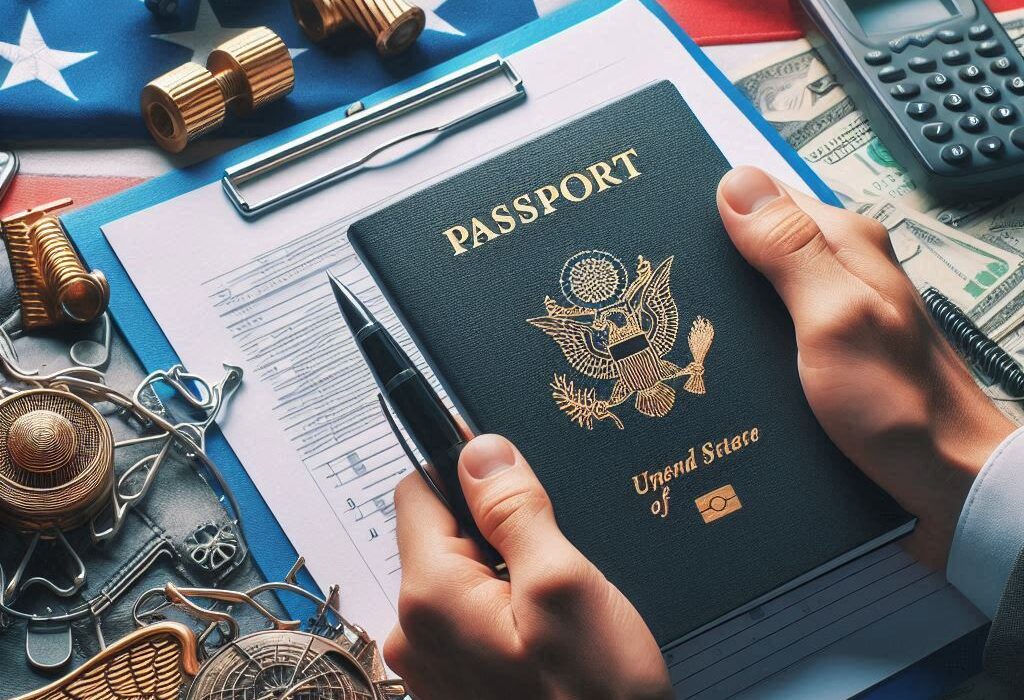Immigrating to the United States is a significant life event that requires careful planning and preparation. From navigating complex legal requirements to understanding cultural differences, the process can be daunting. However, with the right strategies and resources, you can make your transition smoother and more successful. This comprehensive guide outlines the best ways to prepare for immigration to the U.S., covering everything from legal considerations to practical tips for settling in.

1. Understand Your Immigration Pathway
The first step in preparing for U.S. immigration is to understand the specific pathway that applies to your situation. The U.S. offers several immigration pathways, including:
- Family-Based Immigration: If you have close relatives who are U.S. citizens or permanent residents, they may be able to sponsor you for a visa.
- Employment-Based Immigration: If you have a job offer from a U.S. employer, they can sponsor you for a work visa.
- Diversity Visa Lottery: The Diversity Immigrant Visa Program (DV Lottery) provides an opportunity for individuals from countries with low rates of immigration to the U.S. to apply for a green card.
- Asylum or Refugee Status: If you are seeking protection due to persecution in your home country, you may apply for asylum or refugee status.
- Student Visas: For those planning to study in the U.S., student visas such as the F-1 or M-1 are required.
Researching your specific pathway will help you understand the requirements, application process, and timelines involved. Consulting with an immigration attorney can also provide valuable guidance tailored to your situation.
2. Gather Essential Documents
Proper documentation is crucial for a successful immigration process. The following documents are typically required:
- Passport: Ensure your passport is valid for at least six months beyond your intended stay in the U.S.
- Birth Certificate: Obtain an official copy of your birth certificate, preferably translated into English if it is in another language.
- Marriage Certificate: If applicable, provide a copy of your marriage certificate.
- Educational Transcripts and Diplomas: For employment or student visas, you may need to submit educational transcripts and diplomas.
- Financial Documents: Proof of financial stability, such as bank statements, tax returns, or affidavits of support, is often required to demonstrate you can support yourself financially.
- Medical Records: Some visa categories require a medical examination, so have your medical records and vaccination history ready.
Organize these documents carefully and keep both physical and digital copies. Having all required documents prepared will streamline the application process and reduce the likelihood of delays.
3. Complete the Application Forms
Each immigration pathway has specific application forms that must be completed accurately. Common forms include:
- Form I-130 (Petition for Alien Relative): For family-based immigration.
- Form I-140 (Immigrant Petition for Alien Worker): For employment-based immigration.
- Form DS-260 (Application for Immigrant Visa and Alien Registration): For consular processing.
- Form I-485 (Application to Register Permanent Residence or Adjust Status): For adjusting status if you are already in the U.S.
Ensure you fill out each form completely and accurately. Double-check all information to avoid mistakes that could lead to delays or denials.
4. Prepare for the Visa Interview
If your immigration process involves a visa interview, preparation is key. Here’s how to get ready:
- Review Your Application: Be familiar with the details of your application and supporting documents. Be prepared to answer questions about your background, intentions, and eligibility.
- Practice Common Questions: Anticipate common interview questions and practice your responses. This will help you feel more confident and articulate during the interview.
- Dress Professionally: Dress in a professional and respectful manner for your interview. First impressions matter.
The interview is a critical part of the immigration process, so take the time to prepare thoroughly.
5. Plan for Your Arrival
Once your visa is approved, start planning for your arrival in the U.S. Consider the following:
- Accommodation: Arrange for a place to stay upon arrival. Research neighborhoods and consider proximity to work, school, or family.
- Transportation: Familiarize yourself with public transportation options or consider renting or purchasing a vehicle if necessary.
- Healthcare: Look into health insurance options and find a local healthcare provider. The U.S. healthcare system can be complex, so having coverage is essential.
- Banking: Open a U.S. bank account to manage your finances. Research local banks and the documents required to open an account.
- Legal Requirements: Understand your legal obligations, such as reporting to U.S. Citizenship and Immigration Services (USCIS) and applying for a Social Security number.
Making these arrangements in advance will ease your transition and help you settle into your new life more comfortably.
6. Learn About U.S. Culture and Customs
Adjusting to life in a new country involves understanding and adapting to different cultural norms. Here are some tips:
- Research U.S. Customs and Etiquette: Familiarize yourself with social norms, workplace etiquette, and everyday customs. This will help you interact more effectively with locals.
- Language Skills: If English is not your first language, consider taking language classes to improve your proficiency. Strong English skills will enhance your ability to navigate daily life and job opportunities.
- Community Involvement: Engage with local communities and cultural groups. Building a support network can help you feel more connected and less isolated.
Embracing the local culture and customs will enhance your overall experience and help you integrate more smoothly into your new environment.
7. Seek Legal and Professional Advice
Immigration law is complex and constantly evolving. Seeking professional advice can make a significant difference:
- Consult an Immigration Attorney: An experienced immigration attorney can guide you through the process, help with paperwork, and address any legal issues that arise.
- Use Reputable Resources: Rely on reputable sources for information, such as the USCIS website or official government resources. Avoid unofficial websites or services that may offer inaccurate or misleading information.
Professional guidance ensures you are well-informed and prepared for any challenges that may arise during your immigration journey.
8. Stay Informed and Flexible
The immigration process can be unpredictable, so it’s important to stay informed and adaptable:
- Track Your Application: Monitor the status of your application and respond promptly to any requests for additional information or documentation.
- Be Prepared for Delays: Immigration processes can sometimes experience delays due to various factors. Be patient and stay positive.
- Update Your Information: If you change your address, employment, or other significant details, notify the relevant authorities promptly.
Remaining flexible and proactive will help you navigate any unexpected challenges and stay on track with your immigration plans.
Preparing for immigration to the U.S. involves careful planning, thorough documentation, and a clear understanding of the process. By following the steps outlined in this guide—understanding your immigration pathway, gathering essential documents, completing application forms, preparing for the visa interview, planning for your arrival, learning about U.S. culture, seeking professional advice, and staying informed—you can make your transition to the U.S. smoother and more successful. Embrace the opportunity with confidence, and look forward to the exciting journey ahead as you begin your new chapter in the United States.


